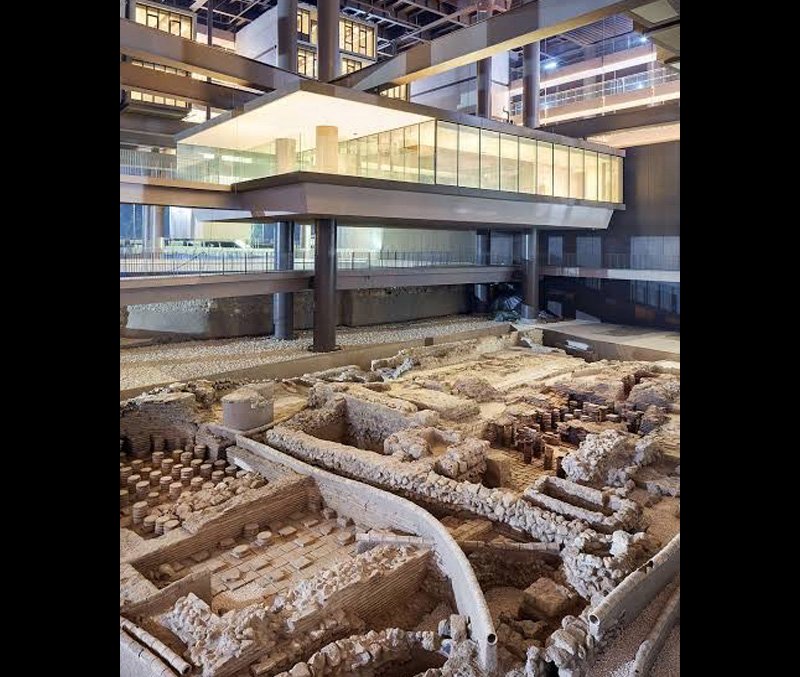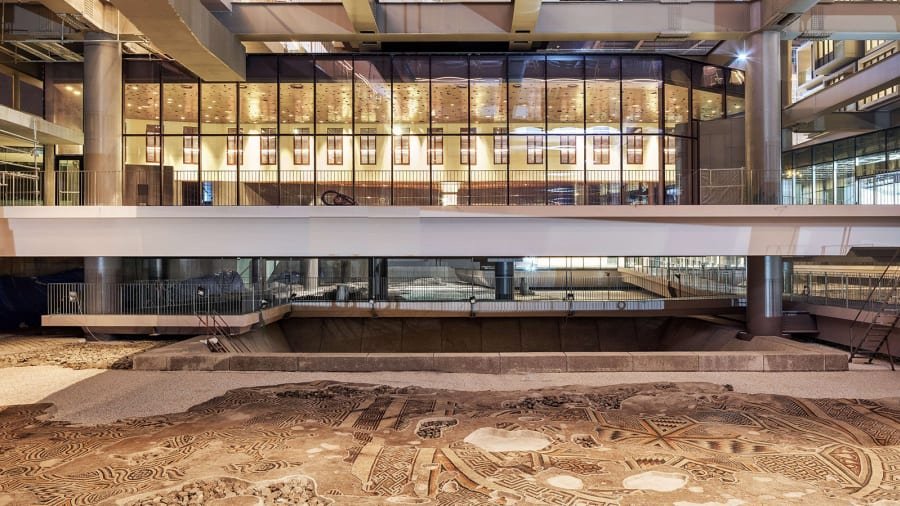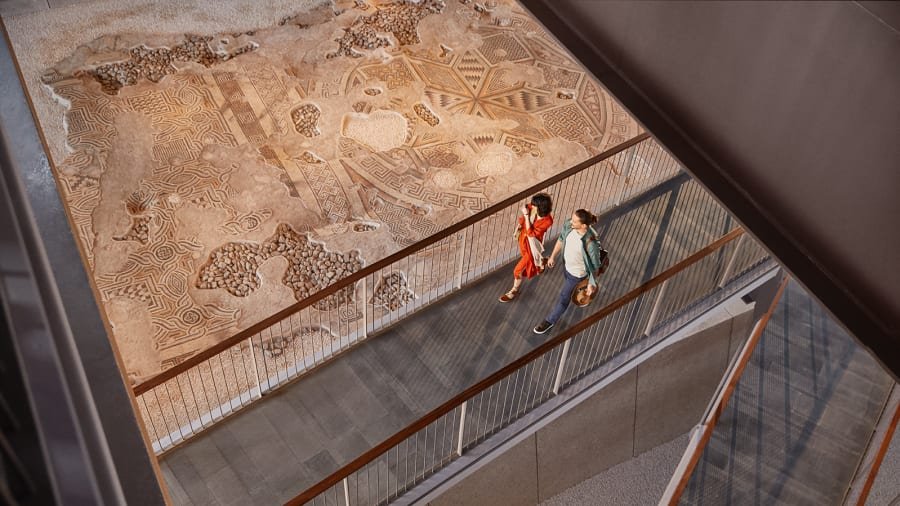
Even though traveling anywhere seems like wishful thinking right now- we’re all making our travel bucket list for when the time comes to be free again. And for then, we’ve got the perfect place for you to stay at.
An architectural marvel has opened up ion Antakya, Turkey, earlier this year on top of a world class archaeological site. Like hotels around the world, Museum Hotel Antakya is temporarily closed because of the coronavirus pandemic, but it’s accepting bookings from June onwards.
Can You Guess How Long It Took to Build It?
Ten years. This modern 200-room hotel “floats” on steel columns above the Necmi Asfuroğlu Archaeology Museum, which contains around 35,000 artifacts dating back to the third century BCE from 13 civilizations.
The plan originally was not to build the hotel so that it was “floating” on top of the ruins. In the year 2009, the Asfuroğlu family broke ground on what was to be a luxury hotel — and discovered ruins from the ancient city of Antioch, a couple of kilometers from the center of what is now modern Antakya. That automatically made the site unworkable for a hotel. However, the family decided to think outside the box.
How Did They Do It?
This proved to be Turkey’s largest systemic archeological excavation since the 1930s. Over the course of this 10-year project, they uncovered the world’s largest single-piece floor mosaic — some 1,050 square meters — and the world’s first marble statue of the Greek god Eros found entirely intact.

The Asfuroğlu family engaged award-winning Turkish architect Emre Arolat to design the “floating” hotel.
Around 20,000 tons of structural steel — four times more than the Eiffel Tower — were hand-welded in a specialist factory near Istanbul.


However, such a hotel has never existed before. Therefore, predicting the total cost of the project was bound to fail because the construction costs swelled to $120 million, more than four times their original estimate. It is truly an engineering marvel and one that has kept the ruins intact while giving making the hotel the first of its kind.

